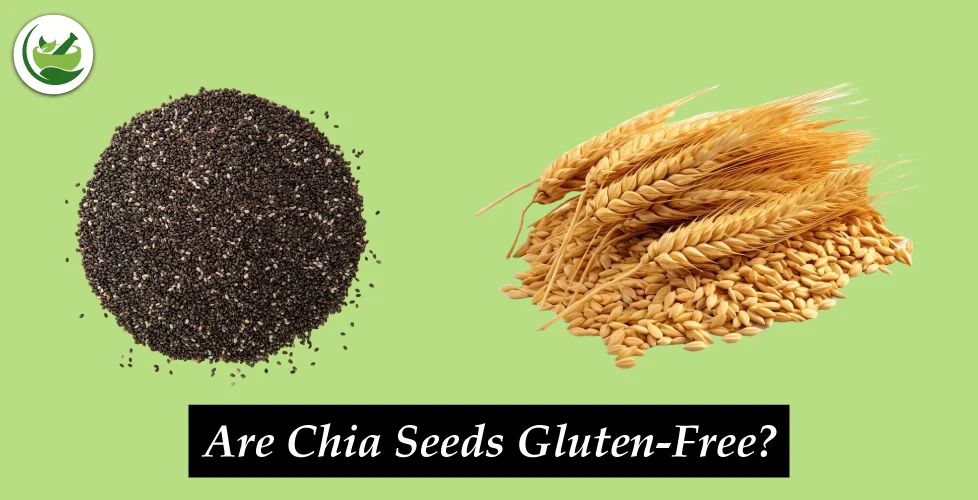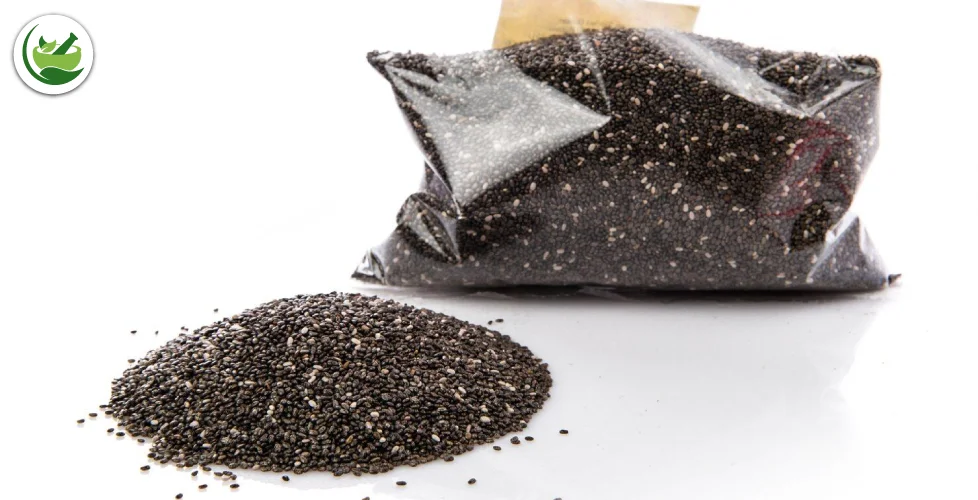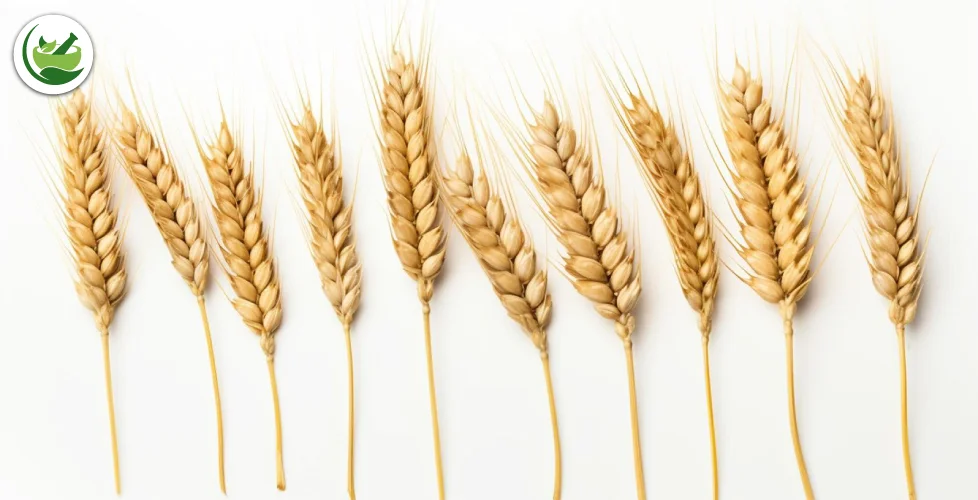
Chia seeds, those tiny, nutrient-packed powerhouses, have gained tremendous popularity in the health food world. Whether you sprinkle them on your yogurt, blend them into smoothies, or make chia pudding, these seeds are not only versatile but also full of health benefits. One common question among health-conscious individuals, particularly those with gluten sensitivities or celiac disease, is whether chia seeds are gluten-free. Let’s dive into this topic, explore the health benefits of chia seeds, and offer some dietary recommendations and tips.
What are chia seeds?
Chia seeds, the small yet mighty seeds of the Salvia hispanica plant, pack a nutritional punch with their high fiber and omega-3 fatty acid content, abundant protein, and numerous essential minerals and antioxidants. These tiny black seeds are native to Mexico and Guatemala and were an integral part of the ancient Aztec and Mayan diets, prized for their energy-boosting properties—the word “chia” itself means “strength” in the Mayan language.

Not only are chia seeds nutrient-dense, but they are also incredibly flexible in culinary use. You can soak them and add them to porridge, transform them into a delightful pudding, incorporate them into various baked goods, or simply sprinkle them over salads and yogurt to enhance their nutritional value.Their ability to absorb water and form a gel-like consistency makes them an excellent thickener for sauces and a viable substitute for eggs in recipes.
Related blog Health Benefits of Black vs. White Chia Seeds
What are glutens?
Gluten is a group of proteins found primarily in wheat, barley, and rye. It acts as a binder that helps foods maintain their shape, acting like a glue that holds food together. Gluten is particularly known for its elasticity and chewiness, which is why it’s heavily utilized in the baking industry to help dough rise and maintain its structure.

Common sources of gluten
- Wheat varieties such as spelt, kamut, farro, and durum, as well as products like bulgur and semolina.
- Barley is used in malt, food coloring, soups, and beer.
- Rye, which is typically found in rye bread, rye beer, and some cereals,.
Importance of Food
Gluten helps dough rise by trapping gas molecules during the fermentation process. This gives bread its airy and fluffy texture. It also contributes to the chewy texture of pastas and other baked goods.
Issues with gluten
For most people, consuming gluten is perfectly safe. However, some individuals may have health conditions that require them to avoid gluten:
- Celiac disease is an autoimmune disorder where the ingestion of gluten leads to damage in the small intestine.
- Gluten Sensitivity: Non-celiac gluten sensitivity can cause symptoms similar to celiac disease, like bloating, stomach pain, or fatigue, but without the intestinal damage.
- Wheat allergy: an allergic reaction to wheat, which is one of the most common sources of gluten. Symptoms can range from mild (rashes, hives) to severe (anaphylaxis).
Understanding these aspects of gluten is crucial for people who need to manage dietary restrictions related to gluten intake, whether due to allergies, sensitivities, or celiac disease.
Are chia seeds gluten-free?
Yes, chia seeds are naturally gluten-free. They are derived from the Salvia hispanica plant, which is a member of the mint family and does not contain gluten. This makes chia seeds a safe option for those with celiac disease or gluten sensitivity. However, it’s crucial to check that they are processed in a facility that does not handle wheat, barley, or rye to avoid cross-contamination. For the safest option, look for chia seeds that are certified gluten-free.
Health Benefits of Chia Seeds
Chia seeds are not only gluten-free but also loaded with essential nutrients that contribute to overall health.
- High in Fiber: Chia seeds are an excellent source of fiber, which is vital for digestive health. Fiber helps maintain bowel regularity and can assist in managing weight by keeping you fuller longer.
- Rich in Omega-3 Fatty Acids: These seeds are one of the richest plant-based sources of omega-3 fatty acids, specifically alpha-linolenic acid (ALA). Omega-3s are crucial for brain health and are known to reduce inflammation.
- Antioxidant Properties: Chia seeds are loaded with antioxidants that help protect the body’s cells from free radicals, which can lead to aging and diseases like cancer.
- Bone Health: They are a good source of calcium, magnesium, and phosphorus, which are essential for bone health.
- Protein-rich: Chia seeds provide a substantial amount of plant-based protein, which is beneficial for muscle repair and growth.
Related blog Exploring the Health Benefits: Chia Seeds vs Basil Seeds
Dietary Recommendations
Incorporating chia seeds into your diet is remarkably easy due to their mild flavor and versatility. Here are some dietary recommendations to get you started:
- Start Slowly: If you’re new to consuming chia seeds, start with small amounts and gradually increase your intake to allow your digestive system to adjust.
- Hydration: Chia seeds absorb water and swell up, so it’s essential to drink plenty of fluids when consuming them to prevent dehydration.
- Whole Seeds vs. Ground: While both whole and ground chia seeds offer health benefits, grinding them may enhance nutrient absorption. However, whole chia seeds can be more convenient for some recipes.
- Incorporate Variety: Get creative with how you incorporate chia seeds into your diet. Add them to smoothies, oatmeal, yogurt, salads, baked goods, or make chia pudding for a nutritious and delicious treat.
Tips for Buying and Storing Chia Seeds
- Certification: Always opt for chia seeds that are certified gluten-free, especially if you have celiac disease or a gluten sensitivity.
- Storage: Store chia seeds in a cool, dry place to prevent them from going rancid. They can also be stored in the refrigerator to extend their shelf life.
- Quality: Look for whole chia seeds, as opposed to ground, for the best quality and nutritional benefits.
Tips for Incorporating Chia Seeds
- Chia Pudding: Mix chia seeds with your choice of milk or plant-based alternative, sweetener, and flavorings like vanilla extract or cocoa powder. Let it sit in the refrigerator overnight to thicken, and enjoy a nutritious pudding.
- Smoothie Booster: Boost the nutritional value of your smoothies by adding a tablespoon or two of chia seeds for added fiber, protein, and omega-3s.
- Egg Replacement: Use chia seeds as an egg substitute in vegan baking recipes. Mix one tablespoon of ground chia seeds with three tablespoons of water and let it sit for a few minutes until it forms a gel-like consistency.
- Salad Topping: Sprinkle whole or ground chia seeds on top of salads for an extra crunch and nutritional boost.
- Baking: You can add chia seeds to bread, muffins, and pancakes as a nutritional enhancer.
- Breakfast Foods: Sprinkle chia seeds over cereals, yogurts, or oatmeal for a crunchy texture and a nutrient boost.
Related blog Maximizing Nutrition: Exploring The Benefits Of Chia Seeds In Smoothies
Conclusion
Chia seeds offer a fantastic nutritional profile that can benefit almost anyone’s diet, especially for those needing gluten-free options. With their ability to reduce inflammation, boost digestive health, and contribute to heart and bone health, chia seeds are a small but mighty food. By incorporating chia seeds into your diet, you can enjoy their myriad health benefits while keeping your meals interesting and flavorful.






